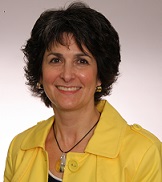 Colleen M. Schmitt, MD, MHS, FASGE, has been named the 2014 to 2015 president of the American Society for Gastrointestinal Endoscopy. Dr. Schmitt describes her goals, new ASGE initiatives and offers insight on the future of GI.
Colleen M. Schmitt, MD, MHS, FASGE, has been named the 2014 to 2015 president of the American Society for Gastrointestinal Endoscopy. Dr. Schmitt describes her goals, new ASGE initiatives and offers insight on the future of GI. Question: What do you hope to accomplish during your time as ASGE president?
Dr. Colleen Schmitt: This year is already off to a great start with the Leadership Education and Development (LEAD) program. We launched the program with an inaugural class of 30 young professional women at Digestive Disease Week. I also hope to develop the focus on the value of endoscopy. We are working with the AGA and ACG to define this value at the regulatory, executive and legislative levels though the initiative we have developed: The Value of Colonoscopy: Saving Lives Through Expert Care.
Q: How did the idea of the LEAD program first arise?
CS: I first became interested in the idea when I was invited to participate in a seminar during DDW last year. We are experts in medicine, but there are other skills important to launching your career, especially for young women. We've included skill sets that we do not learn during training and residency, such as the art of nomination, accepting and receiving; marketing yourself; networking and negotiation. The program focuses on other basic skill sets that are important for any leader.
This program is unique in that it is not a solitary moment in time. It is about developing a community of LEAD participants, a cohort that will work together for many years to come. The program will continue through the rest of the year with this group. We will hold webinars and offer assessment of their individual leadership skills.
Q: How did you find participants for the first LEAD program group?
CS: I actually thought I would have to put out a call for nominations, but I described the initiative to the ASGE board and within a few days we had enough nominations to fill the class. Participants have to be at the assistant professor level or lower; these are not tenured individuals. These are physicians, whether in academics or private practice, who have been identified for their potential leadership skills.
It was very gratifying that the ASGE leadership was so enthusiastic. I thought there would be more of a sell on my part, but they were 100 percent behind the program and this was extremely encouraging.
Q: What do you see for the future of the LEAD program?
CS: We will wrap up this year's program at DDW next year. I hope to launch the second class at the same time. The program just finished a retreat and we have gotten great feedback. Like any educational opportunity, it will evolve with time.
Q: What is the ASGE planning for its Skills Training Assessment Reinforcement (STAR) program this year?
CS: The STAR program is a different educational approach for endoscopic skills; it goes beyond CME. It includes components of self study, online resources, hands-on learning and didactic learning. Intermittent assessments guide learners and instructors. Learners receive feedback even before going to the ASGE Institute for Training and Technology (IT&T), which had its grand opening last year. The program has a comprehensive educational approach that can be expanded as a learning opportunity for the entire endoscopy unit team. Many attendees bring assistants with them.
This year, IT&T is launching new programs for Barrett's esophagus ablation and enteral access. This program is a great opportunity, especially for mid-level gastroenterologists. These physicians are excellent at skills such as identifying and removing polyps, but they can use this program to expand these skills such as endoscopic mucosal resection.
Q: What do you see for the future of the gastroenterology field?
CS: Though there are a lot of challenges, GI physicians will always provide leadership in disease prevention and management. What is going to evolve are the new diagnostic and therapeutic techniques. The context of how we are practicing is evolving. Many of us manage and report quality data in our practices, but we will now really have to highlight the quality of care. We need to educate our patients and referring physicians about the metrics that really matter.
Private practice is still thriving in GI, though there are threats on the horizon. We need to develop focus in our professional societies and define our practices' value. It can be a challenge for us as individuals, but if we keep our eyes on quality I think small practices will continue to exist in our communities.
More Articles on Gastroenterology:
3 Things to Know About the Value of Colonoscopy Initiative
Put GI Data to Work: How to Leverage Data to Improve Reimbursement Rates
Tactics to Curb 4 of the Top Endoscopy Center Cost Drivers


